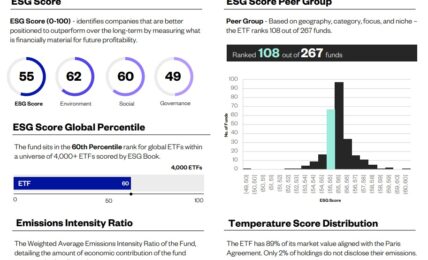By: Dr. Jan-Hendrik Gnändiger, Global ESG Reporting Lead, KPMG
The world is in flux. Business leaders are facing a myriad of crises and challenges – from rising interest rates and inflation to supply chain blockages, driven by the war in Ukraine.
You might argue that now is not the time to be adding to the growing to-do list for CEOs and other corporate decision makers, but the reality is that there’s no going back on sustainability.
In recent months, political leaders and organizations have ramped up their response to sustainability. Years of dialogue are finally shifting toward action – in a matter of months, the first tranche of mandatory ESG reporting regulations will come into force in the EU and will even impact many companies not headquartered there. For boardrooms, that means greater clarity on what’s expected and should be a wake-up call for any leaders who doubt change is on the horizon.
The big shift toward greater global regulation began with the publication of the first of the International Sustainability Standards Board (ISSB) Standards. The ISSB was founded with a clear goal of creating a global baseline of sustainability disclosures – to address the fragmentation of frameworks globally and to drive greater consistency and comparability. On the regulatory side, IOSCO – the international body of securities’ regulators – has endorsed the ISSB Standards and countries are considering how to incorporate them into their regulatory frameworks.
In parallel, the European Commission has also made substantial progress – developing the Corporate Sustainability Reporting Directive (CSRD) and most recently adopting the European Sustainability Reporting Standards (ESRS) for any companies falling within the CSRD’s scope beginning from 2024 onwards and including a clear assurance obligation. Hot on the heels of their European and international counterparts, the Securities and Exchange Commission in the US is finalizing its climate rule.
Time is running out to get ready for the new ESG reporting requirements. But this goes beyond compliance. The world’s northern hemisphere has just witnessed a summer of wildfires and storms – reflecting the growing battle we’re facing against a climate crisis. For businesses, it’s more important than ever to play a key role in delivering a more sustainable, equitable future – one that works for us all, and respects the planet that provides us with the resources that enable us to flourish.
For CEOs, a raft of regulatory change can be daunting, but it’s important to reflect on why this is happening. Although there will inevitably be some divergence and bureaucratic challenges ahead, the goal is to create a more streamlined, consistent approach to how companies report on ESG. In KPMG’s 2022 CEO Outlook survey, nearly 70 percent of leaders told us they were facing rising public, investor and stakeholder pressure for increased ESG reporting and transparency. Meanwhile, changing regulations and global economic uncertainty were viewed as the greatest barriers to tackling ESG.
The data clearly reflects a growing commitment to ESG, but one that’s matched with a fear that reporting could become increasingly complex and contradict the ultimate goal of consistency in reporting. That’s why, with multiple incoming frameworks, standard setters and other stakeholders are keen to maximize the overlap in the requirements and hence their interoperability.
If you’re a business leader and you’re wondering what steps to take, my advice is clear. Companies need to take action now to ensure they’re ready for the changes ahead. The first steps should be assessing which new requirements impact your operations and determining what is material. These should be followed by a relentless focus on data collection – ensuring you’re monitoring all material aspects of your business and turning that data into insights which can assist with reporting.
Companies can then use this data to develop a strategic roadmap, plotting a more sustainable, transparent route ahead that factors in any potential risks or opportunities for growth. In addition, it is not just a matter of setting up a new ESG reporting process, but also about preparing for assurance on ESG reporting under the new requirements.
Sustainability reporting is complex and, for an already overwhelmed boardroom, there is a danger it could slip down the growing list of urgent priorities. For leaders, seek advice from experts, convene and plan. The crises driving the need for changes to sustainability reporting show no sign of abating any time soon, so further mandatory regulation is inevitable. It’s an opportunity for the business community to take a leading role in driving positive change.
.Dr. Jan-Hendrik Gnändiger is KPMG’s Global ESG Reporting Lead



